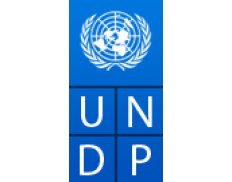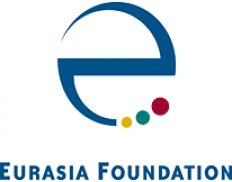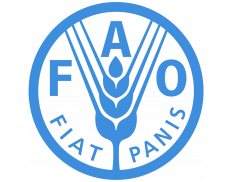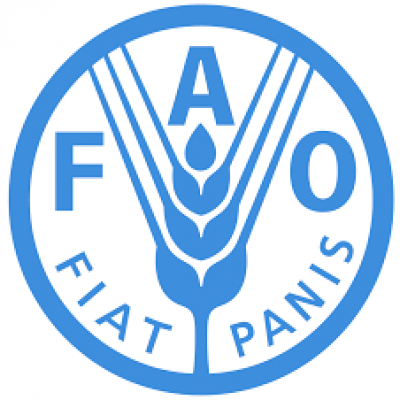Details
Description
Background
Uzbekistan is globally and regionally important in terms of its biodiversity due to its location between the European, Middle Eastern, and Asian biogeographical regions. Its varying landscapes of high mountain ranges, wide steppes, deserts, riparian wetlands, and the Aral Sea has results in a wide diversity of habitats. UNDP, for many years, have supported the Government of Uzbekistan in tackling environmental challenges, including in the area of biodiversity.
UNDP/GEF and Republic of Uzbekistan project on “Sustainable natural resource use and forest management in key mountainous areas important for globally significant biodiversity” will further support the country in addressing biodiversity conservation challenges, specifically with focusing on mountain ecosystems such as the western-most outliers of the western Tian Shan (Chatkal, Pskem, Ugam and Kuramin ranges) and Pamir-Alai (Gissar, Turkestan and Zaravshan ranges), which are home to the endangered snow leopard, and provide important habitat for its key prey species.
The project objective is ‘To enhance the conservation, and sustainable use, of natural resources in the biodiverse high-altitude mountain ecosystems of Uzbekistan’, and the project is structured into four components, with each component comprising a complementary suite of two to three outputs:
Component 1: Landscape level planning and management decision-making;
Component 2: Strengthening key biodiversity areas;
Component 3: Sustainable economic development incentives for communities;
Component 4: Promoting cooperation and collaboration.
In accordance with UNDP and GEF M&E policies and procedures, all full- and medium-sized UNDP-supported GEF-financed projects are required to undergo a Terminal Evaluation (TE) at the end of the project. This Terms of Reference (ToR) sets out the expectations for the TE of the full-sized project titled “Sustainable natural resource use and forest management in key mountainous areas important for globally significant biodiversity” (ATLAS#00090383, PIMS 5438) implemented through the State Committee of the Republic of Uzbekistan on Ecology and Environmental protection (Goscomecology). The project started on the 21 September 2017 and is in its sixth (final) year of implementation. The TE process must follow the guidance outlined in the document ‘Guidance for Conducting Terminal Evaluations of UNDP-Supported, GEF-Financed Projects’. The project implementation period is 2017-2022. The time is based on activities that will provide implementation of best practices, their assessment and primer dissemination of recommendations on their replication in other similar regions of Uzbekistan. Building of sufficient capacity and practical know-how within essential state institutions and local authorities will take too long to allow project sustainability. One of the main lessons learned by UNDP and other development partners in Central Asia in the last 15 years is that to change and reform existing institutions and mind-sets is an extremely time-consuming process if it is to be achieved effectively. This has been a clear lesson from most of UNDP and other development actors’ initiatives in the area and a key reason for many projects to not achieve the full results expected. Thus, it is of paramount importance that in the project a realistic timeframe for the systematic implementation of the various project activities is planned in order to mitigate this risk. This is an additional reason why the timeframe of 5 years has been considered necessary.
The project budget planned for the period of implementation is given in the table below. The actually used donors’ funds are indicated by UNDP and GEF (6,509,863$).
The TE report will assess the achievement of project results against what was expected to be achieved, and draw lessons that can both improve the sustainability of benefits from this project, and aid in the overall enhancement of UNDP programming. The TE report promotes accountability and transparency, and assesses the extent of project accomplishments.
The purpose of the evaluation is to provide an independent external view of the progress of the project at its completion, and to provide feedback and recommendations to UNDP and project stakeholders.
The objectives of the Terminal Evaluation is to:
Identify potential project design issues;
Assess progress toward achievement of expected project objective and outcomes;
Identify and document lessons that can both improve the sustainability of benefits from this project and aid in the overall enhancement of UNDP and GEF programming in the region;
Make recommendations necessary to help consolidate and support sustainability of the project results.
The Terminal Evaluation should also provide recommendations for follow-up activities, which require a management response prepared by the project team, which should be uploaded to PIMS and to the UNDP Evaluation Office Evaluation Resource Center (ERC).
The TE must provide evidence-based information that is credible, reliable and useful. The IC will review all relevant sources of information including documents prepared during the preparation phase (i.e. PIF, UNDP Initiation Plan, UNDP Environmental & Social Safeguard Policy, the Project Document, project reports including Annual Project Review/PIRs, project budget revisions, lesson learned reports, national strategic and legal documents, and any other materials that the team considers useful for this evidence-based review). The IC will review the baseline GEF focal area Tracking Tool submitted to the GEF at CEO endorsement, and the midterm GEF focal area Tracking Tool completed at MTR.
The IC is expected to follow a collaborative and participatory approach ensuring close engagement with the Project Team, government counterparts (the GEF Operational Focal Point), the UNDP Country Office(s), UNDP-GEF Regional Technical Advisers, and other key stakeholders.
This TE is initiated by UNDP CO in Uzbekistan as the Implementing Agency of the Mountain Ecosystems Project. For the effectiveness of common TE and in accordance with the project document requirements, the UNDP CO in Uzbekistan is hiring a National Consultant for Terminal Evaluation. He will assist the team leader of TE in the performance of TE in the country.
Duties and Responsibilities
The National Consultant will provide inputs and support International Consultant/ Team Lead for the Terminal Evaluation throughout this process including translation and accompaniment to meetings/ KII and etc as necessary. Specifically, the National Consultant will perform tasks with a focus on:
Review project-related documents and make them available to the international team leader (with summarized translations into the English language, if necessary);
Provide inputs to the TE Inception Report;
Prepare a list of the outputs achieved under the project; Assist the project team in organising the TE mission programme and take part in the TE mission in Uzbekistan;
Perform translation/ interpretation if and where necessary in support of the TE;
Provide inputs to the presentation of initial findings;
Provide translation/interpretation when necessary;
Contribute to the design of the evaluation methodology;
Draft specific parts of the evaluation report to be agreed upon with the international TE team leader and make inputs to other sections of the report in coordination with the TE team leader;
Provide support in circulation of draft TE report for comments;
Assist International TE Team Leader in finalizing the evaluation report through incorporating suggestions received on draft related to his/her assigned sections.
For more detailed information, please refer to Annex 1 – Terms of Reference for Individual Consultant
Competencies
Ability to meet strict deadlines and work under stressful conditions
Ability to work in close collaboration with a group of national and international experts, to meet strict deadlines and plan the work according to priorities. Strong interpersonal and communication skills. Good analytical and writing skills.
Excellent oral and written communication skills
Good interpersonal and facilitation skills; ability to be flexible, respectful, and effective while working with others from diverse backgrounds
Required Skills and Experience
Advanced university degree or higher in Environmental or Agricultural Economics, Natural Sciences, Land use Management, Biology, International Relations, Economics, Public Administration, Social sciences.
Experience with applying participatory monitoring approaches is an advantage;
Recent knowledge of the International Monitoring and Evaluation Policy is an advantage;
Recognized expertise in the cross-cutting area of environmental protection and environmental planning and management;
Familiarity with environmental planning and management policies in Uzbekistan is an asset;
Work experience in relevant areas (national and regional development planning, environmental management and planning) for at least 5 years;
Good analytical skills
Experience with multilateral or bilateral supported capacity development projects;
Project evaluation experience within international organizations (UNDP, GEF, USAID and others) will be considered an asset.





